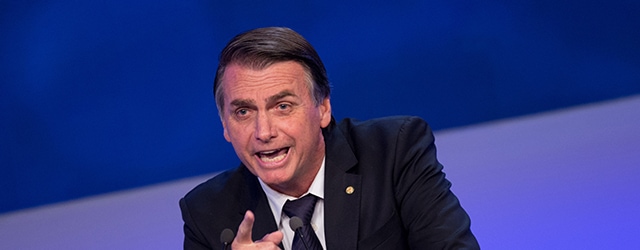Brazilians' stark presidential choice.

As Global Finance went to press, Brazilians had just two more days to make a dramatic choice for their next president.
With the most popular candidate, leftist former president Luiz Inácio Lula da Silva, barred from the ballot, the runoff came down to seven-term member of the Chamber of Deputies Jair Bolsonaro and former São Paulo mayor Fernando Haddad. The national vote last month was a stunning rebuke to congressional incumbents: Fewer than 50% won in the lower house and only 25% in the upper house. At press-time, Bolsonaro was the clear favorite to win the top office.
Bolsonaro’s chief economic adviser, Paolo Guedes, is a free-market guru, eager to cut pensions and privatize state-owned companies. Such policies pleased global capitalists. When Bolsonaro emerged from the first-round balloting with a commanding lead, the Brazilian stock market got a 4.6% boost. A US CEO called Bolsonaro’s likely win a “bullish opportunity for us.” Haddad, a Lula protégé, has run as a moderate.
It’s not clear Bolsonaro can follow through, though. By early October, he pulled back on privatization of oil giant Petrobras and the state-run utility Eletrobras—both of which promptly tumbled in the markets, along with the overall Brazilian market and the real against the dollar. He critiqued China as not buying “in” Brazil but rather “buying Brazil.” Ultimately, the former Army captian may prove more nationalist than capitalist, and the security forces that are no small part of his base may not take well to either pension cuts or privatization. As the hours ticked down to the run-off, Brazilian stocks were volatile. It seems Brazilian politics will continue to be volatile too.



